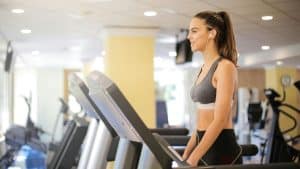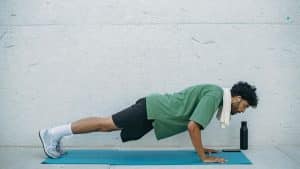Are you looking for exercises to help you recover from posterior tibial tendonitis? Posterior tibial tendonitis is a painful condition that affects the tendon running along your foot’s inner side. The posterior tibial tendon connects calf muscles to bones on the bottom of your foot, providing support for your arch and helping you to walk and run properly.
Three Exercises to Help Recover from Posterior Tibial Tendonitis
Unfortunately, this tendon can become inflamed due to injury or overuse, causing several symptoms such as pain, swelling, and difficulty walking. Fortunately, there are several exercises you can do to help reduce your pain and recover from posterior tibial tendonitis. Let’s take a look at some of these exercises in more detail.
1. The Calf Stretch
The calf stretch is an effective exercise to stretch the muscles and relieve tension in the posterior tibial tendon. To perform this exercise, stand facing a wall with your uninjured leg forward and your injured leg slightly behind with your heel on the ground. Lean into the wall and hold for 30 seconds before moving back into starting position and repeating with your other foot. This exercise should be done three times a day for the best results.
2. Toe Raises and Taps
Toe raises are another great way to strengthen the lower legs while giving extra support for ankle stability. To perform this exercise, stand facing forward with feet shoulder-width apart and toes pointing straight ahead. Next, slowly raise your toes before slowly lowering back down again. Repeat ten times before moving into toe taps by raising one toe at a time before alternating between each side for ten repetitions on each side.
3. Seated Plantar Fascia Stretch
This seated plantar fascia stretch improves ankle flexibility while reducing strain on the posterior tibial tendon. To perform this stretch, sit upright in a chair with both feet placed flat on the floor (or elevated if desired).
Reach down and grab hold of each big toe before gently pulling it towards you until you feel a comfortable stretch in the sole of your foot (you may need to use a towel or band if unable to reach it). Hold this position for 15-30 seconds before releasing back into starting position and repeat three times per each foot.
Conclusion on Exercises to Help Recover from Posterior Tibial Tendonitis
Recovering from posterior tibial tendonitis takes persistence and patience, but following these simple exercises can help make that process much easier!
Always consult a doctor or physical therapist if experiencing any severe or persistent pain, as these exercises may not suit everyone’s situation! But these exercises will help you get back on track in no time!
If you or someone you know is considering bodybuilding, share this article on Facebook or Twitter so that others can learn more about building muscle.
Related Articles
- Wrist Tendonitis Exercises – Take Control of Your Pain
- Posterior Chain – How to Train the Muscles of the Back Side
- Shoulder Workout – The Best Exercises for Bodybuilding
- Bodyweight Exercises – Build Muscular Legs Without Weights
- How Bodybuilders Use Strength Training to Cause Muscle Growth
Subscribe now and get a 14-day free trial workout app for iPhone users.






